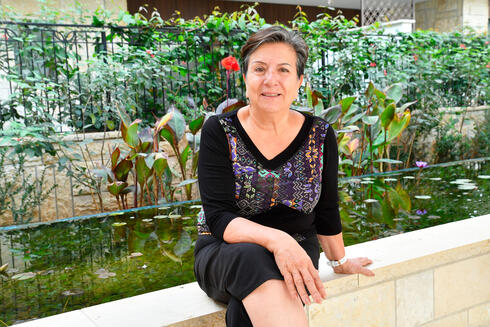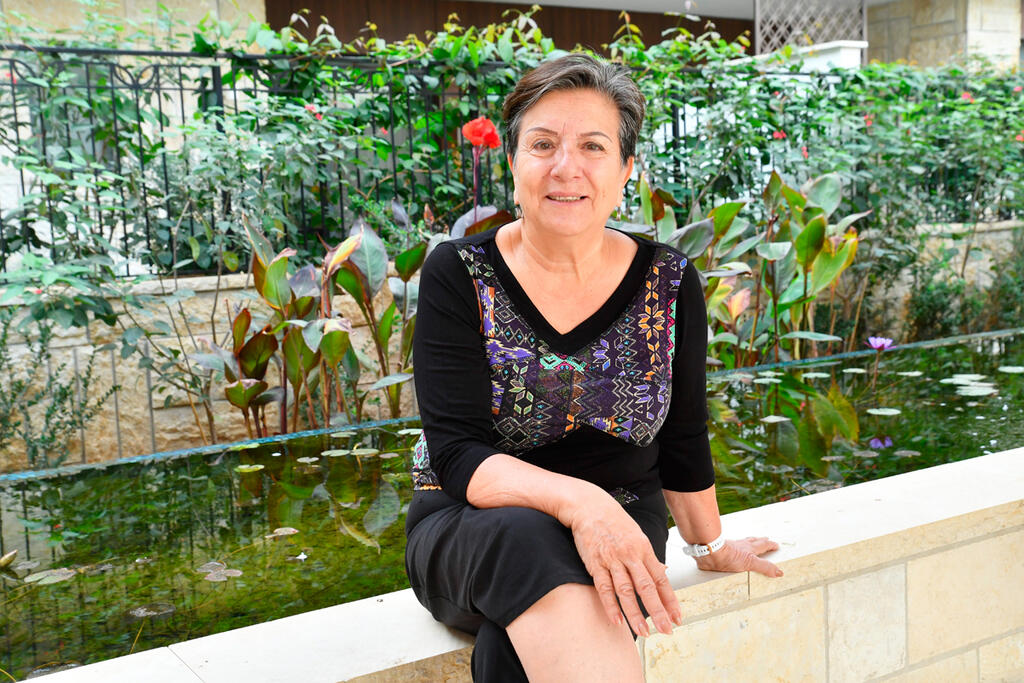
Pensioner gives up fight with bank to deposit massive bitcoin savings
70-year-old Esther Freeman invested around $3,000 in Bitcoin 10 years ago, but Israel's Bank Hapoalim was unwilling to accept her 100x profits. She filed a lawsuit two years ago, but on Sunday both parties officially announced that they agreed to dismiss the case. Since filing the lawsuit, Bitcoin’s price has fallen by around 50%
Almost two years after pensioner Esther Freeman, who made around a million shekels (approximately $270,000) from Bitcoin, sued Bank Hapoalim on the grounds that it refused to allow her to deposit the profits into her account, the lawsuit against the bank has been dismissed. According to a request submitted on behalf of the parties to the Tel Aviv District Court, they declared that "after a conversation between the plaintiff and the defendant bank, they reached an agreement according to which the lawsuit against Bank Hapoalim will be dismissed, and each party will bear its own expenses." Judge Limor Bibi approved the request on Sunday.
Since filing the lawsuit, Bitcoin’s price has fallen by around 50%.
In November 2021, Freeman filed a lawsuit against Bank Hapoalim, explaining that in 2013 she purchased Bitcoin in the amount of NIS 10,000 on the advice of family members. In July 2021, Esther asked to convert some of the Bitcoin, which was being traded at the time at around $58,000 into fiat money. "I'm young in spirit," she said. "I listened to my son and nephews and decided to give it a shot. I had no prior knowledge on the matter and was completely naive. I never dreamed that NIS 10,000 could become almost NIS 1 million."
However, the fairytale story didn’t reach a happy ending. Freeman filed a lawsuit at the Tel Aviv District Court in November 2021 through attorneys Shaul Zioni and Lior Kiperman of the Zioni, Pillersdorf, Phillip Advocates law firm against Bank Hapoalim after it refused to deposit the funds she amassed through her Bitcoin investment. Freeman has held an account at the bank for the past 40 years, but the bank claims that it refuses to accept the funds as Freeman had purchased the Bitcoin in cash, and therefore it has no way of verifying the money route.
"The characteristics of digital currencies allow for them to be transferred in an anonymous and unregulated manner, many times circumventing the need to use financial institutions who are under anti-money laundering and terror financing regulations, and therefore this is an activity that carries a high risk of anti-money laundering and terror financing," the bank wrote in a letter sent to Freeman.
After the lawsuit was filed, the bank filed a statement of defense through attorney Meir Lefler. The bank claimed, among other things, “that on the relevant dates, and even at the time of writing these lines, the position of the Supervisor of Banks is that the banking system should not be required to accept funds originating from virtual currencies, and this in light of the risk involved in exploiting this means for money laundering and terrorist financing."
As part of the statement of defense, Bank Hapoalim explained that according to "Freeman's explanations, it is not possible to trace the money path in relation to the purchase of the virtual currency” and that “only in cases where the funds used to purchase the virtual currency were withdrawn and received in the same account can the receipt of the funds be approved."
The bank also stated that Freeman did not make the purchase from a recognized and/or supervised entity but from a private individual in cash. The bank claimed that under the aforementioned circumstances, the bank should not be forced to accept funds originating in virtual currency contrary to its risk management in this area. On the other hand, the pensioner claimed that the bank's claims are unfounded. As mentioned, today the court, with the consent of the parties, ordered the deletion of the claim against the bank.
Bank Hapoalim stated: "The lawsuit against the bank has been dismissed. The bank acted from the beginning in accordance with its obligations according to law, including the Anti-Money Laundering Law."
Attorney Shaul Zioni, on behalf of the pensioner, responded that: "For various reasons, the procedure became irrelevant, and therefore the sides agreed to dismiss the claim. I would like to point out that the state recently undertook (not in the current procedure-L.D.) to establish a mechanism that would regulate the transfer of funds from abroad for the purpose of paying taxes, and that it stated before the Supreme Court that the matter is close to the finish line.” Zioni did not respond to Calcalist’s question whether the pensioner was ultimately able to deposit the money.














